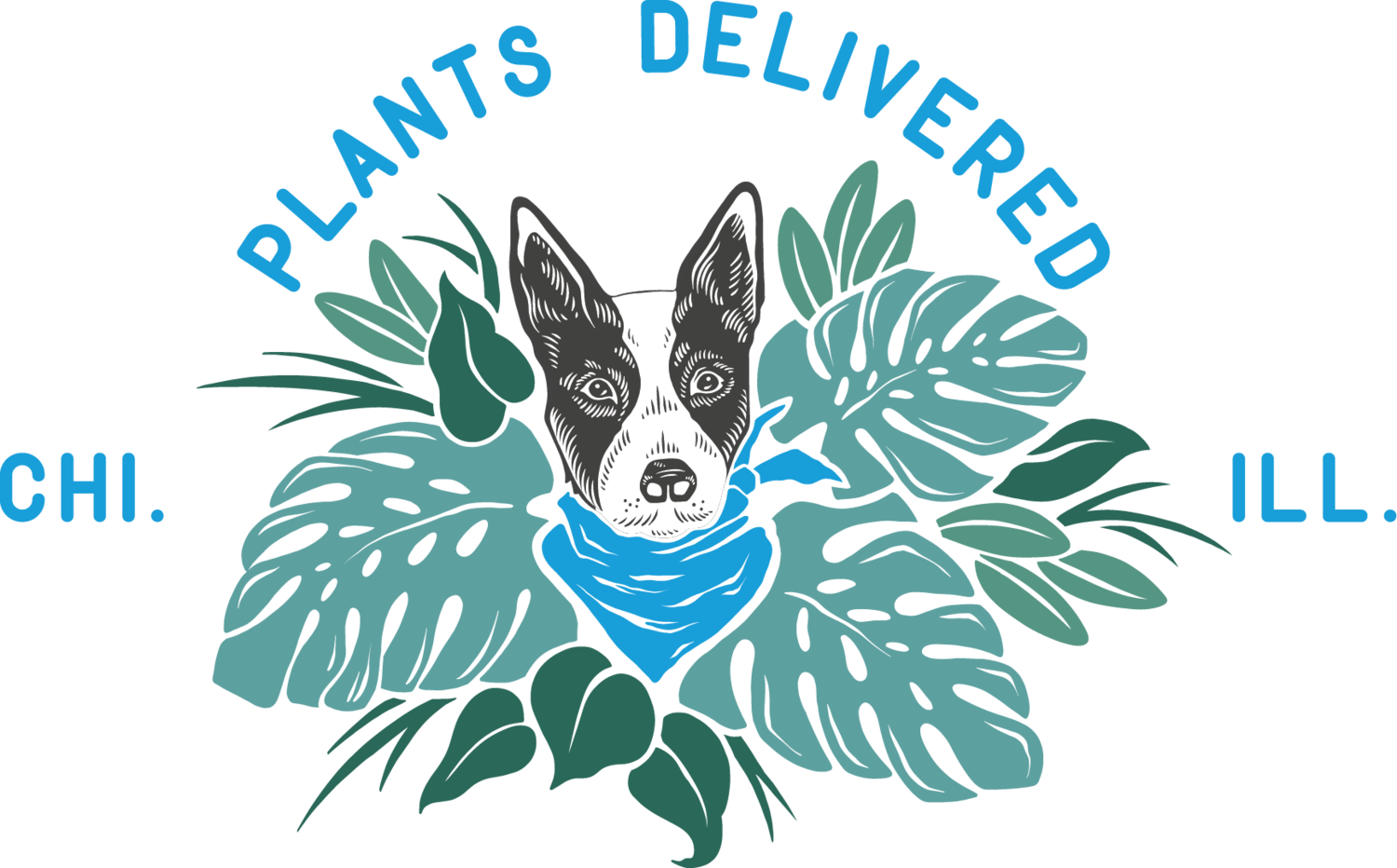Pet Safe Plants!
We’re spending a good portion of our time at home these days, for the well-being of ourselves and others. Luckily some of us have plants to help us keep up the good energy, and others have pets to look after! But if you’ve done business with us now, or in the past, you know we have a passion for bringing together people, plants, and pets. Chances are you’ve probably seen Gerald the blue heeler at some point! He’s on our logo, there on every delivery, and sometimes napping in the front seat as we make our way to you! So Plants Delivered wanted to put some words where our foliage is, and talk about some houseplants that help you meet at the cross street of being a responsible plant parent, and pet owner.
Dog-friendly plants:
Our dogs are getting more of our time and attention lately. Nevertheless, it's important to remember that dogs are still going to have curious tendencies. Even with all their honest intentions, sometimes they can’t help eating, or getting into things they really shouldn’t be getting into--house plants are no exception.
We’ve all heard that there are plants and consumables out there that can be dangerous in the bodies of our best friends.. Here are some that are safe for dogs according to the ASPCA guide to canine-safe plants!
The Baby Rubber Plant (Peperomia Obstusifolia) easy/cat safe
This plant requires very little care, and can adjust to most light conditions in a home. Prefers to dry out in between waterings, making it perfect for beginners.
Calatheas medium/cat safe
Calatheas make beautiful statement plants, they prefer specific low or indirect light conditions, high humidity and prefer filtered water if possible. Leaf tips may occasionally brown. Ideal for plant parents who can commit to a little more maintenance.
Staghorn Fern hard/cat safe
For the intermediate more advanced plant parent. This plant naturally grows on trees without soi. Cannot tolerate direct sun. Entire plant must be soaked or misted once a week during the hot season.
Venus Fly Trap hard/cat safe
For the more advanced plant parent. Venus Fly Traps are native to natural bogs, and require very specialized conditions. Nature provides this effortlessly, but at home we have to work a little to mimic the environment. Do not leave standing water, and water with distilled water if possible. Prefers bright light, do not expose to direct sun. Venus fly traps eat regularly, don’t forget to feed every once a while.
Cat-friendly plants:
Cat’s to us are like snake plants for the most part. They set themselves up in any room, and do best with very little hands on maintenance. With that lone ranger disposition, cats might even be a little stressed that we’re home so often now. To deal with the stress, they may mess around where they normally wouldn’t, and new houseplants might be a good place to start!
Here are some plants that your cat can get into that are non-toxic, tough, and pretty
Cast Iron Plant (Aspidistra elatior) easy/dog safe:
Prefers low light conditions and to dry out in between waterings, and falls under low on the maintenance scale. Ideal for beginners!
Wax Plant (Hoya Incarnata) easy/cat safe
This plant can tolerate a variety of light conditions, and does best with minimal waterings. Very easy on maintenance and also ideal for beginners!
Haworthia easy/dog safe
These plants may look like succulents but they actually don’t like direct sun! Water only when the leaves start to curl and the soil has dried out, roughly every two weeks.
False Aralia (Plerandra elegantissima) medium/dog safe:
This interest plant does best when the soil is consistently moist but not wet. Let dry out in between waterings. False Aralia will grow best when in bright light, they do not enjoy direct sun. Best for a plant parent with mid level experience.
Majesty Palm (Ravenea rivularis) medium/dog safe:
Certain palms can be a little trickier than others. The Majesty palm enjoy high humidity, well drained but moist soil, and bright light. Since they enjoy humidity, they do benefit from an occasional misting. Some house plant or palm experience required.
Phalenopsis orchid hard/dog safe:
While this species of orchid is the easiest to care for in the orchid family, it’s still more than a walk in the park. Water thoroughly once every 7-10 days during the summer months, cut back in winter. This orchid is a low light orchid, so it's happiest in low to bright light. Cut back blooms when they’re done, keep temperature above 60 degrees. Definitely needs a seasoned plant parent!
There you have it! A short and by no means exhaustive list of plants to get any pet owner started with house plants. Reminder: We are only enthusiastic plant people, not vets or animal care experts… For more information on feline and canine plant toxicities please consult with your veterinarian, and the ASPCA list of toxic/non-toxic plants for dogs and cats.
Stay in, stay strong, and may the foliage be with you!
